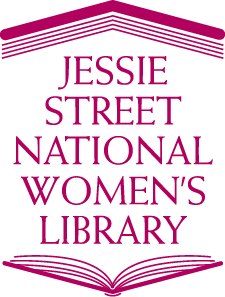Tapestry series no. 54
Date contributed: 10.09.1997
Contributed by Helena Irene Hall
My memories of Grandma were of a tall, well built woman with grey hair walking with me to collect eggs from the barn, a disused dairy on the creek bank under the bridge. I remember the butter making. The milk was boiled on the stove, poured into a dish and set to cool on the shady verandah – no fridge or icebox in those days. One or two days later the cream was skimmed off and beaten to produce butter. Tea was something I looked forward to. It was often a boiled egg served in an aluminium cup accompanied by fingers of bread cut thin from a tin loaf. In the early days she had to make the bread. Gingerbread (still a favourite) was sometimes served. After tea it was reading time. Grandma had many volumes on farming and of course there was the newspaper and novels from the school of arts library.
Helena Richmond Meaney (nee Murphy) was born at Kilgin on the Richmond River in 1870 when the river was in flood. Her mother had been evacuated by boat as the water came up the windowsills. She moved to the only piece of dry land on top of a hill. The surrounding settlers had congregated there and Helena was born in a building there. After the flood the family moved to the Clarence River area. The family lived in various farms and Helena commenced school there. The family then returned to Kilgin otherwise they would have lost the land they had selected in 1869. After finishing her primary education Helena was appointed pupil teacher in 1885 at the Broadwater Public School. In the school holidays all pupil teachers from the Tweed, Richmond and Clarence areas were required to sit for exams in Lismore. Because Helena intended to marry she did not take up a scholarship to train as a teacher at the Public Instruction College in Sydney. She would have been required to teach for five years after finishing her course.
She married Patrick Meaney in 1890. He farmed with his father on a sugar cane farm in Meaney’s Lane. There was only a horse track in and out of the lane when they were married. After leaving Meaney’s Lane they moved across the river to a farm at Back Channel. There was no road there for a few years and to go out from the farm they rowed a boat across the river, tied the boat up at a friends wharf and caught a boat going to Ballina.
As finances improved, Helena and Patrick had a family of three boys followed by five girls. One evening during a game of chasings, one of the girls fell and cut her knee deeply on a broken bottle. Helena felt that the knee would have to be stitched or the result would be a stiff knee. As it was dusk, there was no question of driving many miles in a sulky to a doctor so Helena stitched the knee herself. She enlisted the help of two brothers to help restrain the patient. When a visit was made to the doctor, he commented ‘You would make a fine surgeon’.
Helena started dairying on the farm with the assistance of her three sons. Patrick was away working. The dairy was registered in her own name. The cream was taken by rowing boat across the river to be sent to the factory at Ballina via riverboat. Any butter headed for the houseboat was sent back in a billycan. The remainder of the butter was sold by the factory.
When the Great War broke out in 1914, a branch of The Red Cross was formed in Wardell (the town of Back Channel). The foundation President was Helena Meaney. Her health forced her to relinquish the presidency after two years but she remained Vice President until her death. She was a delegate to a Red Cross Conference in Lismore where a motion before the delegates was about getting a suitable convalescent hospital for war neuroses for soldiers coming home from the 1914 -1918 war. She spoke brilliantly on the motion and it was passed against the votes of some of the Sydney delegates. Mrs Mary Dent, the recording secretary, said years later the speech had carried the day. ‘Russell Lea’ was opened at Five Dock to help those sick men. In 1935, the Red Cross awarded long service medals to those who had twenty years of service. Helena received her award at the Town Hall, from the Governor General’s wife, Lady Isaacs. It was a wonderful experience for her.
In 1905 Helena became reporter for the Northern Star, published in Lismore. She visited farms in the area, took photos and wrote about the crops and cultivation for the agricultural page in the paper. I remember her measuring the rainfall and entering it in her notebook. She would send the statistics and information each month to the paper.
In 1927 a new hall was built at Wardell. It had been hard to raise the money. Helena had been a strong advocate of the project. She was chosen to officially open and name the hall. It was called Richmond Hall after her. Helena was active in all things that would benefit the town. She worked for the opening of the Catholic Church in 1910 and the convent in 1913.
Helena’s sister had a millinery shop in Oxford Street, Sydney, and could get nice things from the warehouses and sometimes sent new clothes up to Helena. Having the new outfit was a strong incentive for Helena to set off with her eldest daughter in the sulky to drive to the horse races in Grafton, a distance of ninety miles. After the races the night was spent in Grafton at a friend’s house and then they drove back to Back Channel.
Always anxious to explore things Helena did not tell any of the family that she was going to have a joy ride in a plane on New Years Day. It was a Gypsy Moth and the year was 1934. One of her sons seeing the plane on the beach at Evans Head said, ‘What lunatic would go up in that thing?’ Surprise, surprise, when Helena emerged later from the plane. After that she was sold on air travel. Aged 65, she flew with New England Airways from Lismore to Sydney. Two other family members went by train.
When Helena died in 1940 she was survived by her husband and family. The eldest son worked for the railway, the other two sons each had their own business. Three of the girls were nurses, one a schoolteacher and the youngest stayed at home to help the parents as was often the custom at that time.

